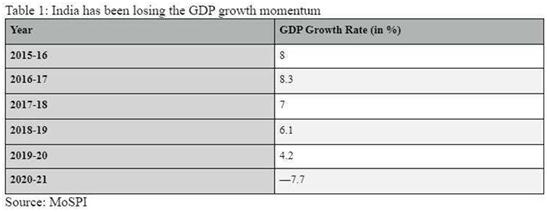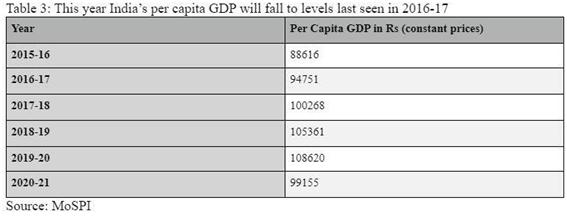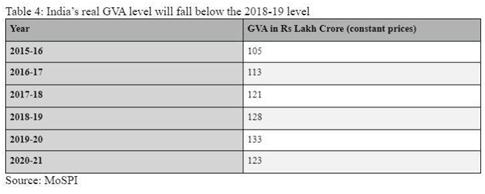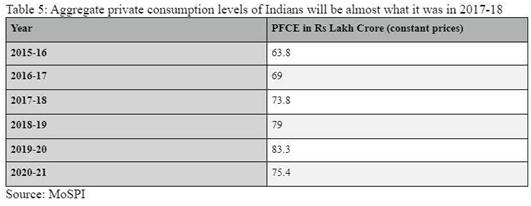Context
- This year, India’s per capita GDP, per capita private consumption and the level of investments in the economy all will fall to levels last seen in 2016-17 or earlier, reveals latest official GDP data.
What are the First Advance Estimates of GDP?
- The Ministry of Statistics and Programme Implementation released the First Advance Estimates (FAE) for the current financial year.
- India’s gross domestic product (GDP) will contract by 7.7 per cent in 2020-21.
How are the FAE arrived at before the end of the concerned financial year?
The FAE are derived by extrapolating the available data. The sector-wise estimates are obtained by extrapolating indicators such as
- Index of Industrial Production (IIP) of first 7 months of the financial year
- Financial performance of listed companies in the private corporate sector available up to quarter ending September, 2020
- The 1st Advance Estimates of crop production
- The accounts of central & state governments
- Information on indicators like deposits & credits, passenger and freight earnings of Railways, passengers and cargo handled by civil aviation, cargo handled at major sea ports, sales of commercial vehicles, etc., available for first 8 months of the financial year.
What are the key takeaways from the First Advance Estimates for 2020-21?
1. GDP Growth Rate:

- A big reason for the contraction this year has been the disruption caused by Covid-induced lockdowns which saw the economy contract by almost 24 per cent in the first quarter.
2. Absolute level of real GDP
- India’s real GDP — that is, GDP without the influence of inflation — in 2020-21 will be lower than the 2018-19 level.
3. Per Capita GDP:
- India’s per capita GDP will fall to Rs 99, 155 in 2020-21 — last seen four years ago during 2016-17.

4. Absolute level of real Gross Value Added (or GVA):
- The Gross Value Added maps the value-added by different sectors of the economy such as agriculture, industry and services.

5. Absolute level of Private Final Consumption Expenditure (PFCE)

- The biggest demand for goods and services comes from private individuals trying to satisfy their consumption needs. This demand is called PFCE and it constitutes over 56 per cent of the total GDP.PFCE levels will be almost what they were in 2017-18.

